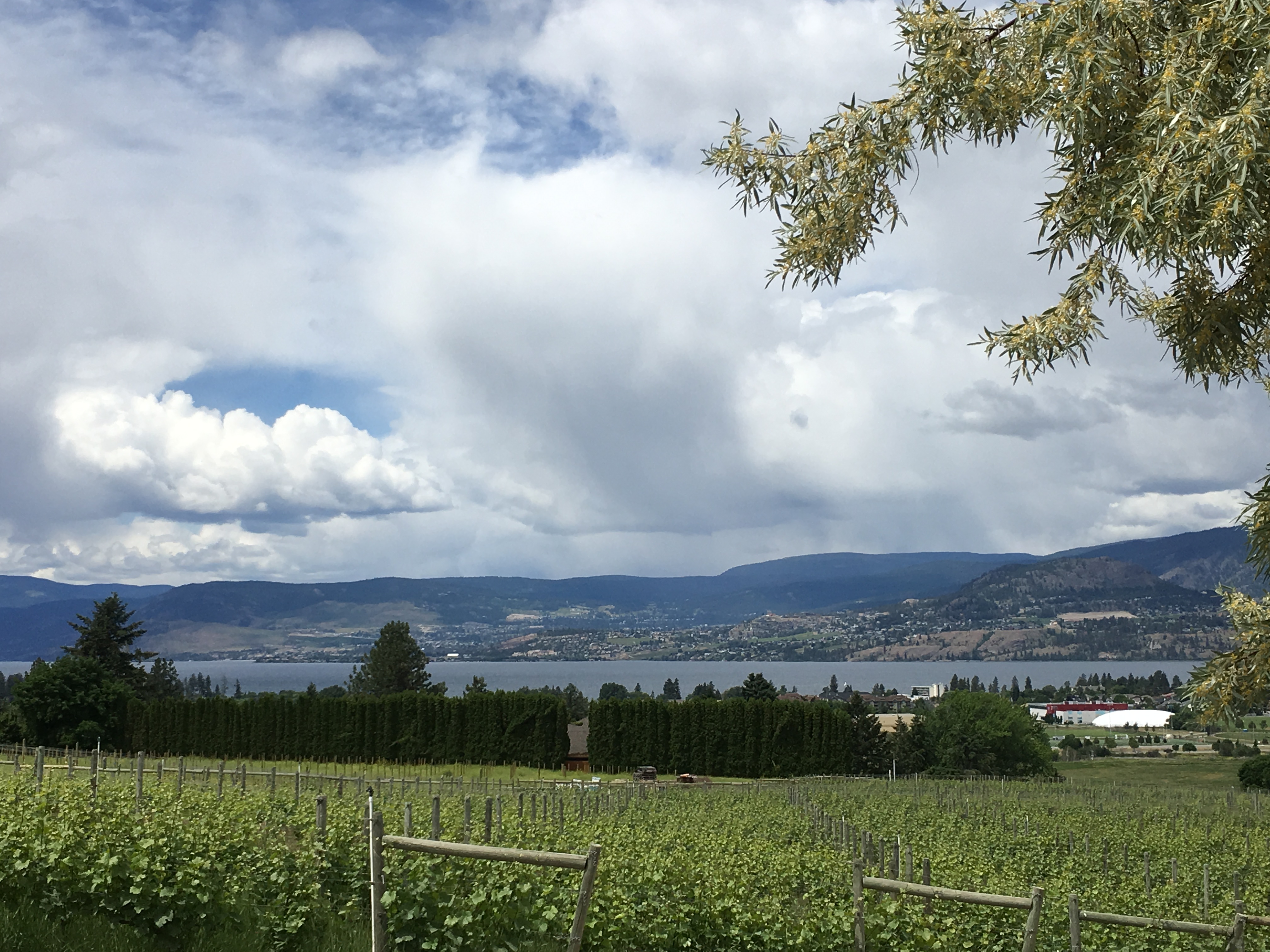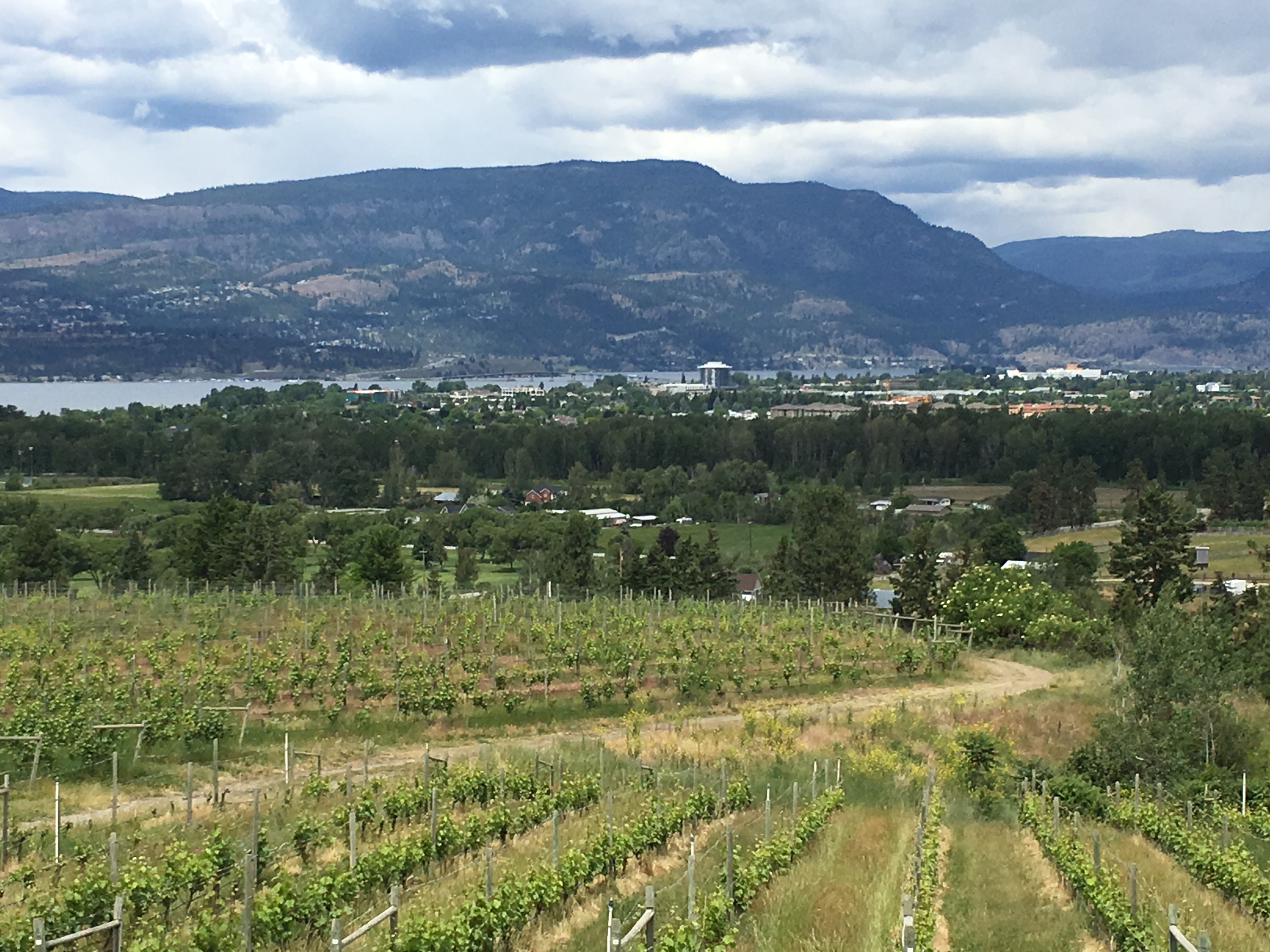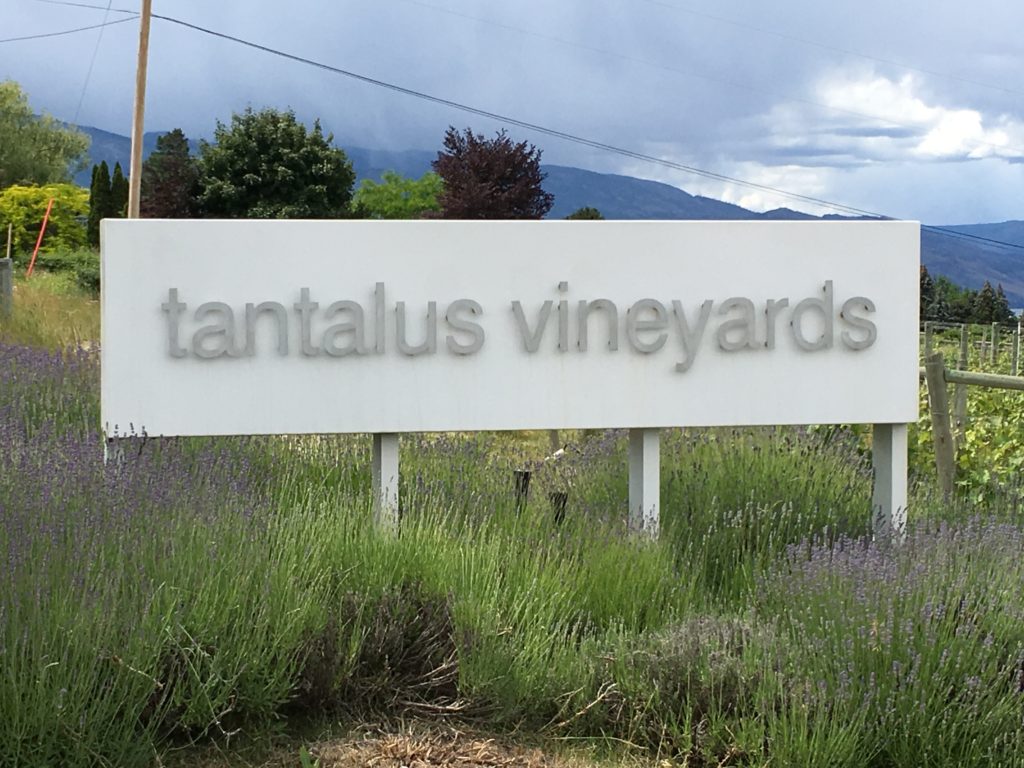Last September I reported on how BC had recently gained several new official wine appellations and also a new sub-appellation – Okanagan Falls. I’ve visited most of the wineries in this new sub-region, including Blue Mountain, Liquidity, Meyer Family Wines and Synchromesh, which are among some of the best wine producers in the Okanagan Valley. I’ve also visited many other great wineries, both new and older, up and down the Valley.
However there was one Okanagan Valley winery that for various reasons had so far eluded me. Tantalus Vineyards has for several years now been making what, in my book at least, is BC’s (indeed maybe Canada’s) best dry Riesling. Their Old Vines Riesling is a benchmark of the type: a wine of great length, texture, complexity and crisp acidity made from grapes off the oldest riesling vineyard in the valley, planted in 1978.
Last October I was set to visit Tantalus as the first winery in a two-day tour of the Okanagan Valley with my WSET Diploma class. The weather had other plans for me however, and my flight up to Kelowna to join the group was cancelled due to fog at YVR. So I took a later flight and joined our group at the next winery. Everyone raved about their visit to Tantalus.
So it was with great anticipation that I finally got there this past month, on the way back from a road trip to Calgary. It did not disappoint.
We are greeted by David Paterson, Tantalus winemaker and general manager. We immediately set off into the vineyard: my kind of winery visit. Which makes the view down the slope towards nearby urban Kelowna somewhat incongruous. But then I’m reminded of the intimate physical proximity between some famous wine estates and cities (Chateau Haut Brion and Bordeaux for example, or Penfolds’ Magill Estate and Adelaide), and it makes more sense. This is one of the Okanagan Valley’s oldest continuously farmed vineyards, so the geographic proximity stands to reason.
David is a recovering Kiwi (he married a local woman and their kids are unambiguously Canadian, but he’s still a diehard All Blacks supporter of course), and has some very strong views about the best way to grow grapes and make wines, which he enthusiastically shares. The vines are naturally farmed with minimal chemical interference and a strong sustainability ethos. The land is respected and treated as a holistic environment: wild flowers and grasses grow between vine rows, the silty soils are minimally treated, water is conserved and re-used, bees are actively encouraged, and natural clusters of mixed woodland have been retained between various cultivated vineyard blocks. No wonder I notice insects and butterflies, hear varied birdsong and spot a red-tailed hawk circling overhead as we walk the rows of old vines. The presence of an apex raptor is a sign of a healthy environment. It also appears to be David’s preferred environment too.
The same approach is found in the winery, where carefully calibrated, low-intervention winemaking is the name of the game. This means that the wines vary from year to year and parcel to parcel, according to vintage conditions, but they also reflect their unique sense of place: Terroir-based winemaking at its best. Tasting several different batches of wine from barrel reinforces the point.
David learned his winemaking from some of the best in the business, including Prue and Stephen Henschke at the eponymous South Australia winery famed for its outstanding single vineyard Hill of Grace Shiraz. There are links here to common values of continuity, humility, respect for the land and rigour, as with the Henscke family’s sixth generation farming legacy.
Finally we head up to the tasting room, where we taste through the Tantalus lineup: a delicious rosé, reductive, complex chardonnays, those amazing rieslings, and several pinot noirs including the standout Reserve Pinot Noir, a small lot wine (only 110 cases of the 2016) made following clearly Burgundian methods (no surprise, David worked a stage there too), with partial whole bunch fermentations using ambient wild yeasts, pigeage (punching down the skins and pips cap), extended aging in only partially new oak barriques, before being gently racked, then bottled unfined and unfiltered. Naturally we bought a bottle, along with the aforementioned Old Vines Riesling.
Tantalus may not be as famous (or remotely as expensive, thankfully!) globally as Haut Brion or Henschke, but make no mistake, it is producing some of the best wines in Canada, and from a vineyard that is only getting better and more expressive of its unique terroir. Someday perhaps it will join that pantheon of great wines. Like my deferred first visit, we need just be patient.





